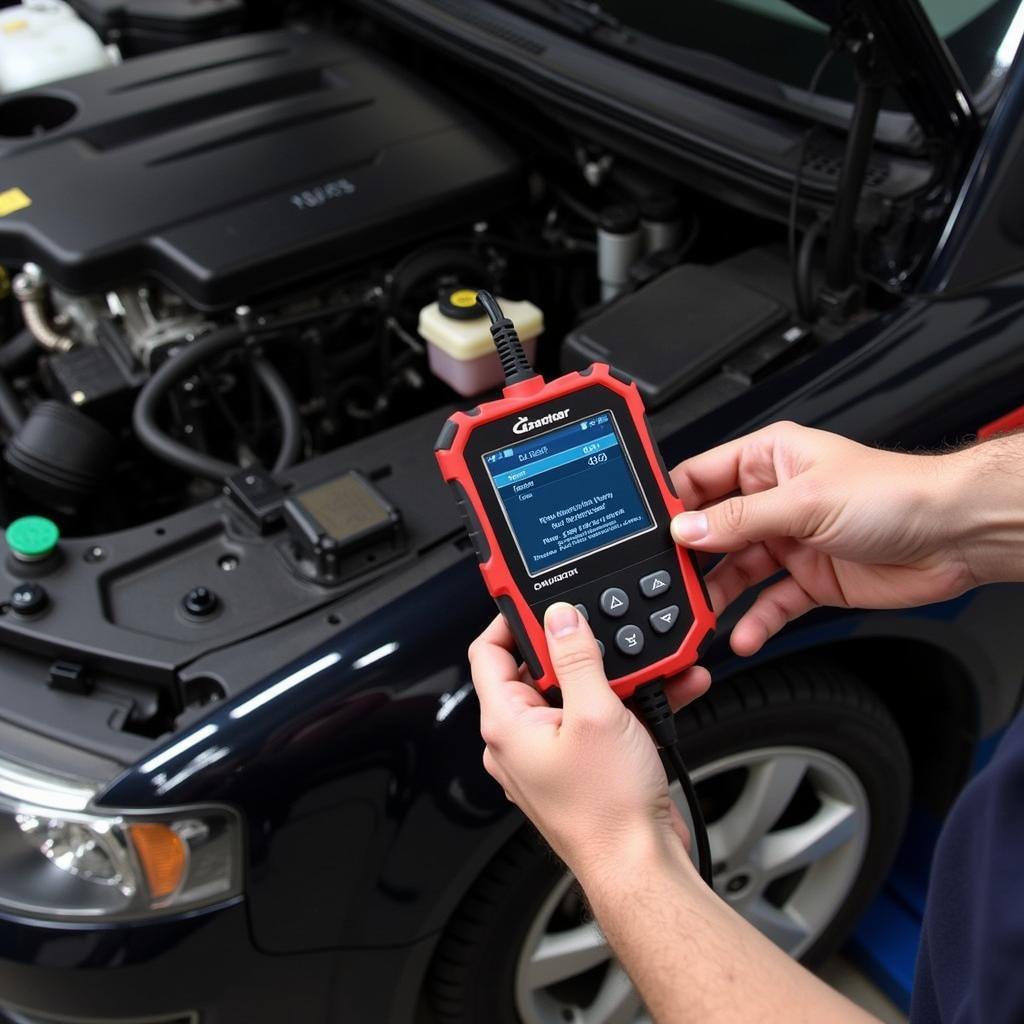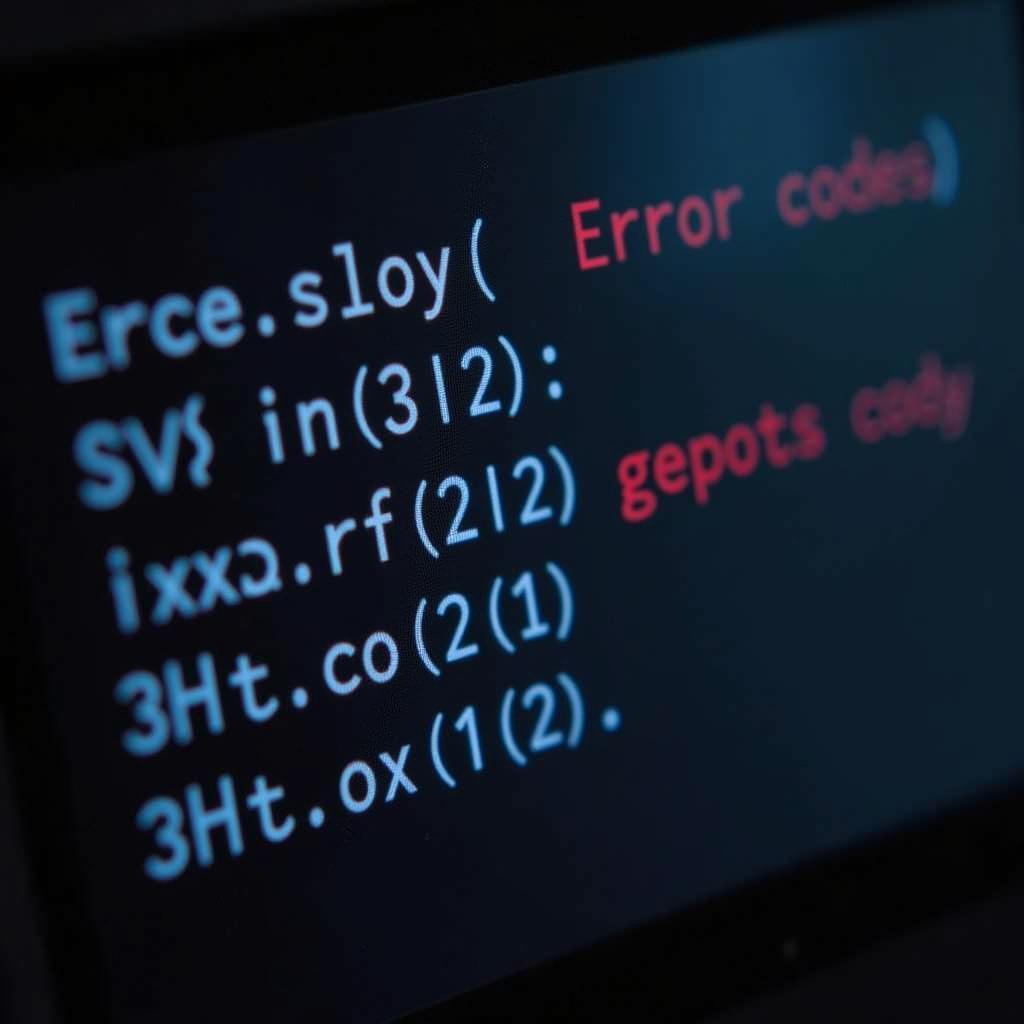Finding an Affordable Car Diagnostic Tool might seem like searching for a needle in a haystack, but it doesn’t have to be. With so many options available, both DIYers and professional mechanics can find the perfect tool to meet their needs and budget. This guide will explore everything you need to know about affordable car diagnostic tools, helping you make an informed decision and keep your vehicle running smoothly.
Why You Need a Car Diagnostic Tool
Modern vehicles are increasingly complex, with intricate computer systems controlling everything from engine performance to safety features. When a problem arises, a car diagnostic tool acts as your translator, deciphering those cryptic error codes and providing valuable insight into the issue.
Here are a few compelling reasons why investing in an affordable car diagnostic tool is a smart move:
- Save Money on Repairs: Identifying the problem yourself before heading to a mechanic can save you hundreds, even thousands, of dollars in unnecessary repairs.
- Empower Yourself: Take control of your car maintenance and repairs, becoming an informed car owner instead of relying solely on mechanics.
- Prevent Future Problems: Regular car diagnostics can detect minor issues before they escalate into major headaches, saving you time, money, and stress down the road.
- Increase Resale Value: A well-maintained car with a documented service history, including regular diagnostic scans, commands a higher resale value.
 Mechanic Using Affordable Diagnostic Tool
Mechanic Using Affordable Diagnostic Tool
Types of Affordable Car Diagnostic Tools
The market offers a diverse range of affordable car diagnostic tools to fit various budgets and needs. Let’s delve into the most common types:
1. Basic Code Readers
As the name suggests, these tools read and display basic diagnostic trouble codes (DTCs) generated by your car’s computer. While they won’t pinpoint the exact problem, they provide a starting point for further diagnosis.
Ideal for: Car owners looking for a budget-friendly option to understand basic engine issues.
 Basic Code Reader Displaying Error Codes
Basic Code Reader Displaying Error Codes
2. OBD2 Scanners
OBD2 scanners offer a step up from basic code readers, providing more detailed information about the error codes, such as their definitions and potential causes. Many affordable OBD2 scanners offer additional features like live data streaming, freeze frame data, and emissions readiness checks.
Ideal for: DIY enthusiasts who want more in-depth diagnostic information and the ability to monitor their car’s performance.
3. Mobile Device Adapters
These compact devices plug into your car’s OBD-II port and communicate wirelessly with your smartphone or tablet. By downloading a compatible app, you can access a wealth of diagnostic information, including code definitions, live sensor data, and even manufacturer-specific data.
Ideal for: Tech-savvy car owners who prefer the convenience and portability of using their mobile devices for car diagnostics.
4. Professional-Grade Scanners
While generally more expensive, professional-grade scanners offer the most comprehensive diagnostic capabilities. They can access manufacturer-specific codes, perform advanced functions like bi-directional control (sending commands to the car’s systems), and provide detailed graphical representations of data.
Ideal for: Professional mechanics and experienced DIYers who require the most advanced diagnostic functionality.
Choosing the Right Affordable Car Diagnostic Tool
With so many options available, selecting the right affordable car diagnostic tool can seem daunting. Here are some key factors to consider:
- Your Budget: Determine how much you’re willing to spend on a diagnostic tool, keeping in mind the features and capabilities you need.
- Your Skill Level: Choose a tool that aligns with your mechanical expertise. If you’re a beginner, a basic code reader or OBD2 scanner might suffice.
- Vehicle Compatibility: Ensure the tool you choose is compatible with your car’s make, model, and year. Check the manufacturer’s website or the tool’s documentation for compatibility information.
- Features and Functionality: Consider the features most important to you, such as live data streaming, freeze frame data, and manufacturer-specific code reading.
- Ease of Use: Look for a tool with a user-friendly interface, clear instructions, and readily available customer support.
diagnostic scan tools for all cars
Maximizing Your Investment: Tips for Using Your Affordable Car Diagnostic Tool
Once you’ve chosen the perfect affordable car diagnostic tool, maximize its potential with these helpful tips:
- Understand the Basics: Familiarize yourself with the tool’s functionality, how to connect it to your car’s OBD-II port, and how to navigate its menus.
- Read the Manual: It may seem obvious, but taking the time to thoroughly read the tool’s manual can save you time and frustration down the line.
- Research Error Codes: Don’t jump to conclusions based on error codes alone. Research the codes online or consult your car’s service manual to understand their potential causes.
- Use Online Resources: Numerous online forums and communities are dedicated to car diagnostics and repair. Don’t hesitate to seek advice and share your experiences.
- Keep Records: Document all diagnostic scans, including the date, error codes retrieved, and any actions taken. This information can be valuable for future troubleshooting or when selling your car.
 Mechanic Researching Error Codes Online
Mechanic Researching Error Codes Online
Conclusion
Investing in an affordable car diagnostic tool is a wise decision for any car owner, empowering you with the knowledge and tools to take control of your car’s health. By understanding the different types of tools available, considering your individual needs, and utilizing the tips outlined in this guide, you can confidently choose the right affordable car diagnostic tool and keep your vehicle running smoothly for years to come.
FAQs
1. What is an OBD-II port and where can I find it?
The OBD-II port, short for On-Board Diagnostics, is a standardized 16-pin connector found in most cars manufactured after 1996. It’s typically located under the driver’s side dashboard, near the steering column.
2. Can I use an affordable car diagnostic tool on any car?
Most affordable car diagnostic tools are compatible with a wide range of vehicles, but it’s crucial to check compatibility before purchasing. Look for tools that specifically state they support your car’s make, model, and year.
3. Can an affordable car diagnostic tool fix my car’s problems?
No, diagnostic tools only identify and provide information about potential issues. They don’t have the capability to fix mechanical or electrical problems.
4. Do I need a professional-grade scanner for DIY car repairs?
Not necessarily. For basic DIY repairs and maintenance, an affordable OBD2 scanner or mobile device adapter can provide sufficient information. However, professional-grade scanners offer more advanced features and are ideal for complex diagnostics and repairs.
5. How often should I use my car diagnostic tool?
It’s recommended to perform a diagnostic scan at least once a year or whenever you experience unusual car behavior, such as warning lights on the dashboard, strange noises, or performance issues.
Need help choosing the right car diagnostic tool? Contact us on WhatsApp: +1(641)206-8880 or Email: [email protected]. Our 24/7 customer support team is here to assist you.

Leave a Reply